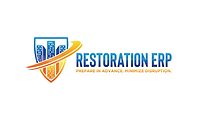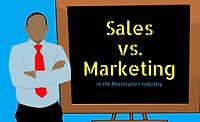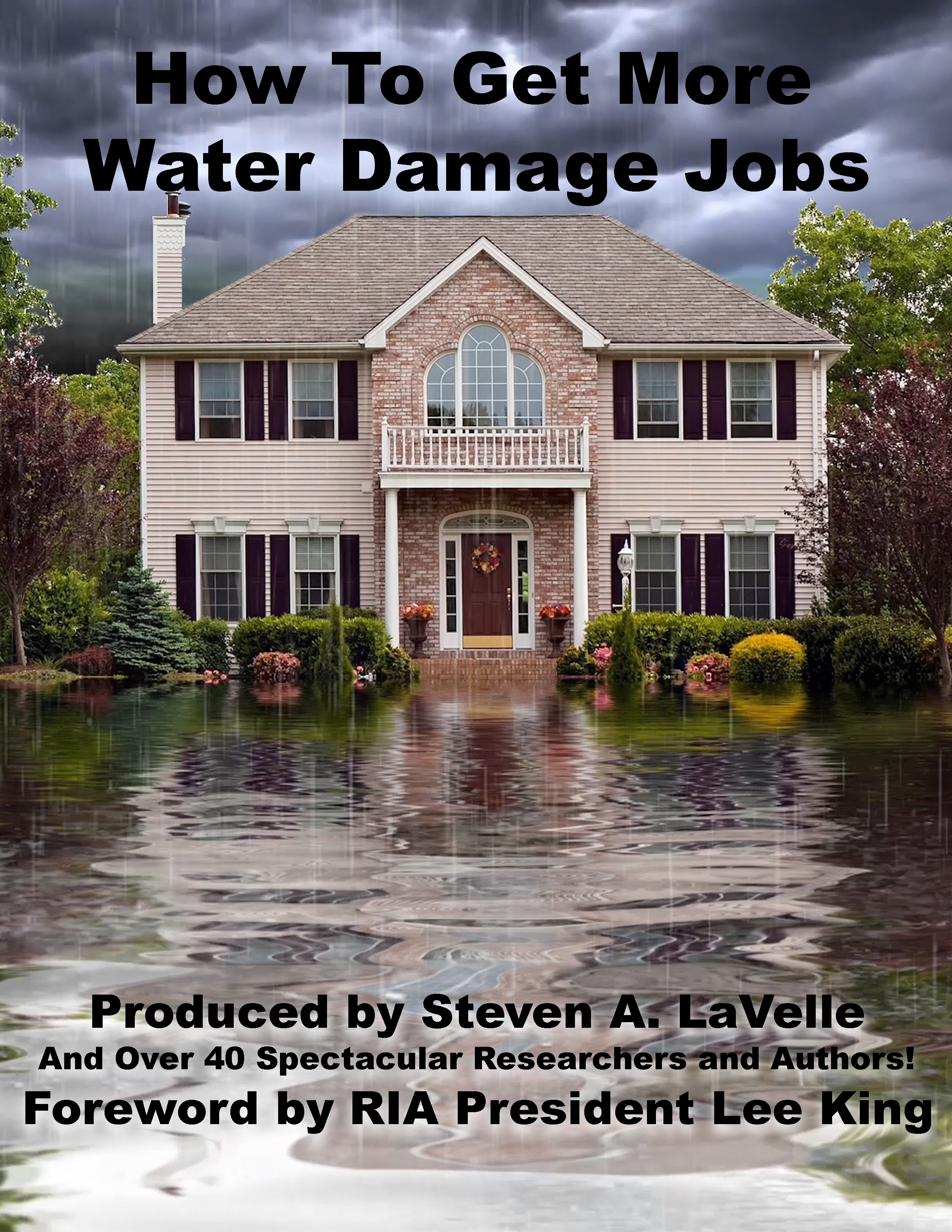How To Get More Commercial Sales For Your Restoration Company

Every vertical in the restoration industry presents its own challenges when it comes to generating leads and sales. In the commercial vertical, there are many more challenges you will face versus another, such as plumbers. With plumbers, you typically have two strategies; offer a referral fee and offer to give them work on your restoration projects. Both are pretty straight forward and can be either quick wins or quick no's.
With commercial clients, it's not as straight forward. It's more about providing value and building a relationship. There are also a lot of challenges you can face.
- Long sales process - commercial clients typically have a restoration company they work with, and if they like them, getting a foot in the door can be challenging and get a shot.
- Decision maker - depending on the size of the organization, it can be very difficult to get in front of the decision maker. Depending on the experience of your business development representative, there might be a ceiling on the capabilities of accessing and selling to large businesses.
- Selling to C-level executives - not only is it challenging to get in front of the decision maker, but these executives are also harder to sell and require a different approach than your local insurance agent or plumber. You have to keep in mind these people are usually fact-driven, business focus, and more straight to the point decision makers.
- Developing the relationship - these people are hard to get in front of and sell, limited on time, and already have a previous relationship with another business rep at a different restoration company.
How do you stand out from the crowd of salespeople, calling on your potential client and offer value in your pitch to get them to listen?
Something like setting up a disaster preparedness plan is a great way to get their attention. Here are what the plan offers and some of the benefits;
- All facilities should have some plan in place, but most don't. So you're assisting the facilities director (or other decision makers) in their own job description.
- It makes your restoration company look more professional and stand out in a crowded market. You're offering to put a plan in place, get familiar with their facility, organization information for them to access 24/7 - it's a robust professional approach.
- The process of setting up the ERP (or whatever you would like to call it) plan inherently assists you in developing a relationship. The plan takes time to implement. You have to make visits to each facility they have at least once, and there are typically several conversations to collect information and onboard the client.
So what is an ERP plan, and what's the best way to implement one?
The ERP Plan (quick version)
The ERP plan is a disaster preparedness/business continuity plan that facilities have in place to help be better prepared for disasters and recover quicker. The plan consists of;
- Facility walkthroughs
- Photos
- Essential documents like the ERP agreement, floor plans, evacuation plans, communication log, and much more
- Contact information of facility staff, emergency contacts, important vendors and more
- Rate sheets for setting up pre-approved pricing
How Do You Implement All This?
An ERP plan is a big undertaking. You have to develop branding for the program, create the material for the agreements, sales presentations, collect the data and information, store it somehow (typically a binder) and update it as information changes. All of that seems like a lot because it is.
What are some great options to consider to help you implement this plan into your organization?
- Restoration ERP - is an online ERP platform tool. It makes setting up the whole ERP Plan a breeze, and not only that, it makes your restoration company look even more professional. Everything is in one central location, easy to access, mobile-friendly, and they supply you with all the marketing material you need to get started!
- Disaster ERP - another online ERP plan platform tool. Disaster ERP also supplies you with the necessary marketing help to get started, but they also have a network of contractors to communicate with, and their tool offers more inside of it, like a CRM as well.
- Business Development Associates - Tim Millers (who owns and runs BDA) has been in the restoration industry for a long time. Tim assists you in improving your sales and setting up campaigns like the ERP Plan and more.
- Tim Farmer Consulting - Tim is another great resource and consultant that aids restoration companies in increasing their sales and more. He also offers a free 3 hour sales consultation.
Looking for a reprint of this article?
From high-res PDFs to custom plaques, order your copy today!








